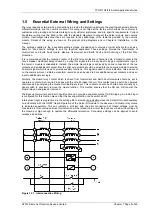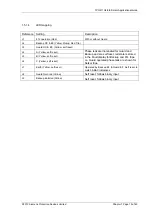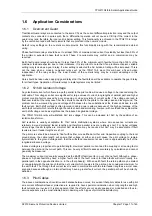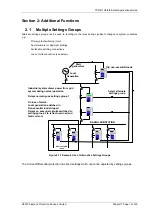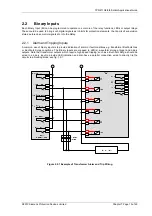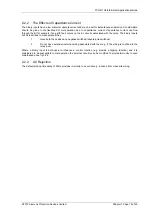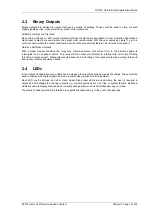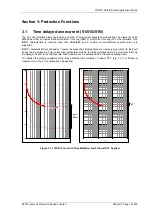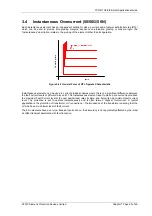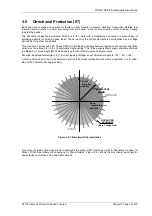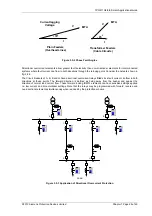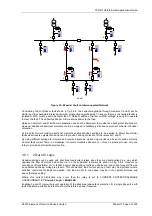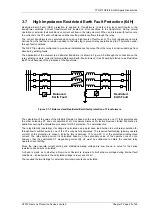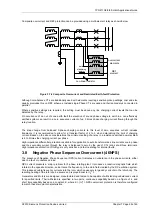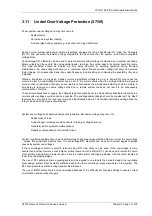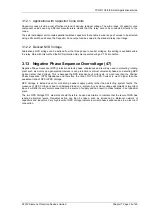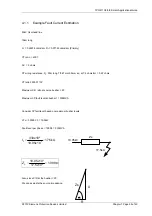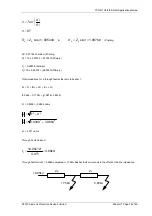
7PG2113/4/5/6 Solkor Applications Guide
OC/EF Curve Characteristic
Application
IEC Normal Inverse (NI)
ANSI Moderately Inverse (MI)
Generally applied
IEC Very Inverse (VI)
ANSI Very Inverse (VI)
Used with high impedance paths where there is a significant difference
between fault levels at protection points
IEC Extreme Inversely (EI)
ANSI Extremely Inverse (EI)
Grading with Fuses
IEC Long Time Inverse (LTI)
Used to protect transformer earthing resistors having long withstand times
Table 3-1
Application of IDMTL Characteristics
3.1.2 Reset Delay
The increasing use of plastic insulated cables, both conventionally buried and aerial bundled conductors, have
given rise to the number of flashing intermittent faults on distribution systems. At the fault position, the plastic
melts and temporarily reseals the faulty cable for a short time after which the insulation fails again. The same
phenomenon has occurred in compound-filled joint boxes or on ‘clashing’ overhead line conductors. The
repeating occurrence of the fault can cause electromechanical disc relays to “ratchet” up and eventually trip the
faulty circuit if the reset time of the relay is longer than the time between successive faults.
To mimic an electromechanical relay the relay can be user programmed for an ANSI DECAYING characteristic
when an ANSI operate characteristic is applied. Alternatively a DTL reset (0 to 60 seconds) can be used with
other operate characteristics.
For protection of cable feeders, it is recommended that a 60 second DTL reset be used.
On overhead line networks, particularly where reclosers are incorporated in the protected system, instantaneous
resetting is desirable to ensure that, on multiple shot reclosing schemes, correct grading between the source
relays and the relays associated with the reclosers is maintained.
Figure 3.1-3 Reset Delay
©2010 Siemens Protection Devices Limited
Chapter 7 Page 21 of 49


